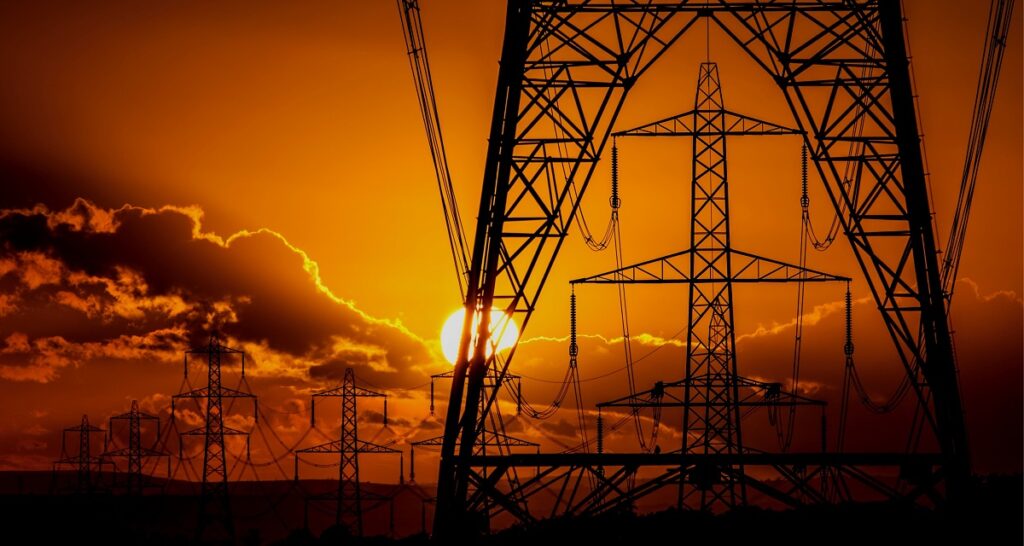Over the 21-22 and 28-29 September, the EnTech World Congress brought together the best and brightest from the energy technology sector. Over the course of the four days, speakers and panelists examined the key challenges – and opportunities – facing the sector.
From network reliability to the speed of technological development, from distributed energy resources to cybersecurity, energy technology is set to play a crucial role in helping to decarbonise the sector across the UK and beyond.
Here are five of the key takeaways from this year’s EnTech World Congress:
1.Open data as a critical foundation of a net zero future
Open data is certainly not a new concept, and so its prevalence in many of the discussions at this year’s event is hardly surprising. Many of the speakers stressed its importance to the transition to net zero, with conversations surrounding its use cases for the energy networks a particularly hot topic.
Its ability to reduce uncertainty around investment in technologies such as electric vehicle chargepoint hubs or energy storage devices was praised, as was its ability to minimise the chances of surprises.
References were also made to the Energy Data Taskforce, which outlined how modernising the UK energy systems will require data transparency and access.
“I believe that certainly data exchange, data skills and culture is important and part of our move to support net zero,” UKPN’s distribution system operator readiness programme manager, Lynne McDonald, said.
However, as explained by Gavin Starks, founder of Icebreaker one, while there’s a “huge amount” of value in publishing open data, there’s also a fear among companies that if they give out all their information, they’ll lose value or miss an opportunity.
Indeed, when it comes to open data, “we’ve got to really drill into what’s the business case, what are the specific applications and problems and challenges we’re trying to address here, that data can help us unlock,” Starks said.
2.People at the heart of digitalisation
A further theme to emerge from the EnTech World Congress was that despite digitalisation being a technology-driven process, people are very much a core facet of the transition.
“Digitalisation is not about systems, or data, or tools; it’s about people. And ultimately, it’s about how we empower our staff to do more with less,” Adele Ara, head of global business operations at Lightsource BP, said.
This was agreed upon by SSE Renewables’ head of digital ventures, Oliver Abell, who explained that SSE’s approach is to give people in the business access to tools they need to do their job better.
Examples of this approach include moving people from Excel to Power BI, giving people quick and easy access to data platforms with advanced capabilities.
Alongside this, there’s a need to recognise that companies within the energy sector need skills that they didn’t necessarily have before, which may have to be brought in from outside.
3.Uncertainty remains over the role of VPPs in a future energy system
Virtual power plants (VPPs) have been springing up all over the energy sector, allowing the aggregation of a number of domestic energy resources (DERs). Speakers generally agreed that there is a role for VPPs in the future energy system, but what that role looks like, how widespread and how important is still up for debate. The concept is still very new, and a variety of factors is sure to influence the role of VPPs.
This includes regulation, with there being “some questions of the regulation of this” according to IRENA’s deputy director, innovation & technology center, Roland Roesch.
Ofgem’s Jane Dennett-Thorpe, deputy director, decarbonisation & energy transition, said that there’s clearly opportunity for VPPs, and in particular pointed to the massive potential of vehicle-to-grid technologies.
“What we need to do is make sure we’ve set up the regulatory and market frameworks to really enable that power and that storage capacity to be used to its fullest within the market,” she said.
4.Digitalisation AND network upgrades will be needed to expand renewable energy capacity
With sectors such as heating and transportation shifting to electrified solutions to aid decarbonisation, the amount of generation capacity in Britain needs to grow.
“The role and responsibility of DSO’s goes well beyond grid decarbonisation,” said Remy Garaude-Verdier, head of European Affairs at Enedis. “DSO’s like us are ready to facilitate the energy transition by integrating more renewables, expanding and strengthening the grid, enabling sector integration, all while ensuring the reliability of the system.”
Digitalisation represents a top priority within this process, the panelists agreed within The Transition for DSOs: Connecting Networks & Accelerating Decarbonisation session.
A holistic approach which both takes advantage of smart grid technology to integrate more renewables by utilising data together with increased traditional expansion will provide the most effective route to decarbonisation.
This approach has so far allowed for three times as many distributed assets to be connected said Luis Arturo Hernández Salmerón, head of energy communities and networks at E.ON Innovation.
5.The pandemic has accelerated the push to net zero
COVID-19 led to an acceleration in the push for net zero, panelists on the Transition in a New Era and Building for the Future session suggested.
Far from hampering the work of energy companies to decarbonise their operations amidst the additional challenges created by the pandemic over the past year and a half, the turbulence has led to a further focus on reaching net zero, as fast as possible.
“The pandemic did lead to a drastic change, but it clearly lead to acceleration in putting our strategy in action,” said Tema Benhalima-Bouville, head of strategy & transformation at ENGIE. “We moved a little bit faster in pushing ourselves towards a bolder ambition.”
There is an opportunity for efforts to build back following the pandemic in a way that aids the energy transition, creating jobs in growing green sectors.
Going forwards, more transparency between grid operators, governments and generators will be a key enabler of this acceleration, suggested Kareen Boutonnat, CEO of Europe & International at Lightsource BP.






